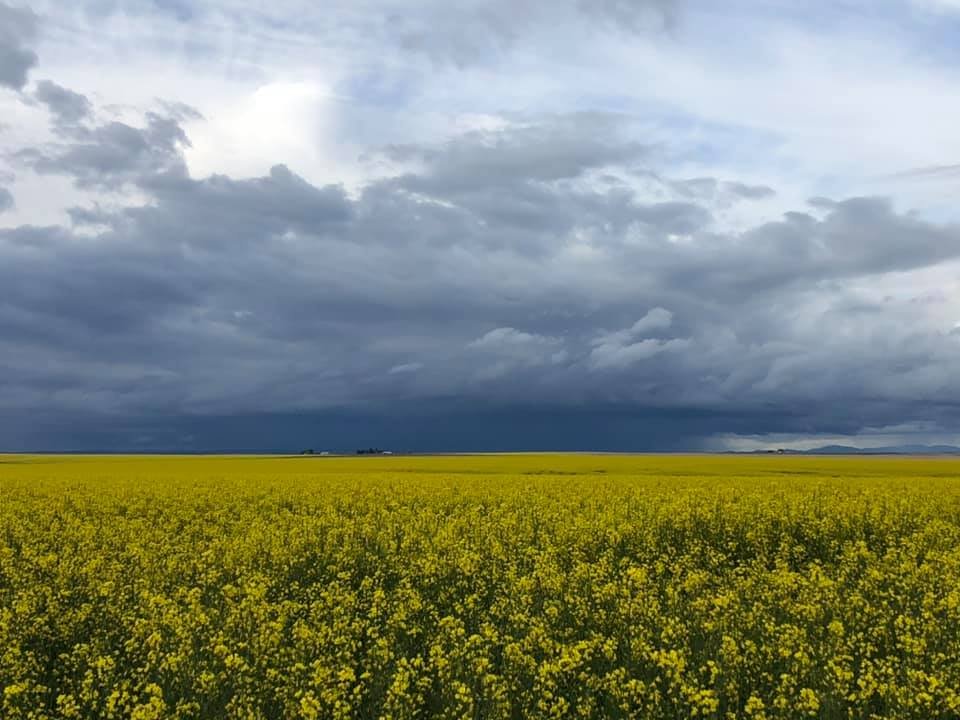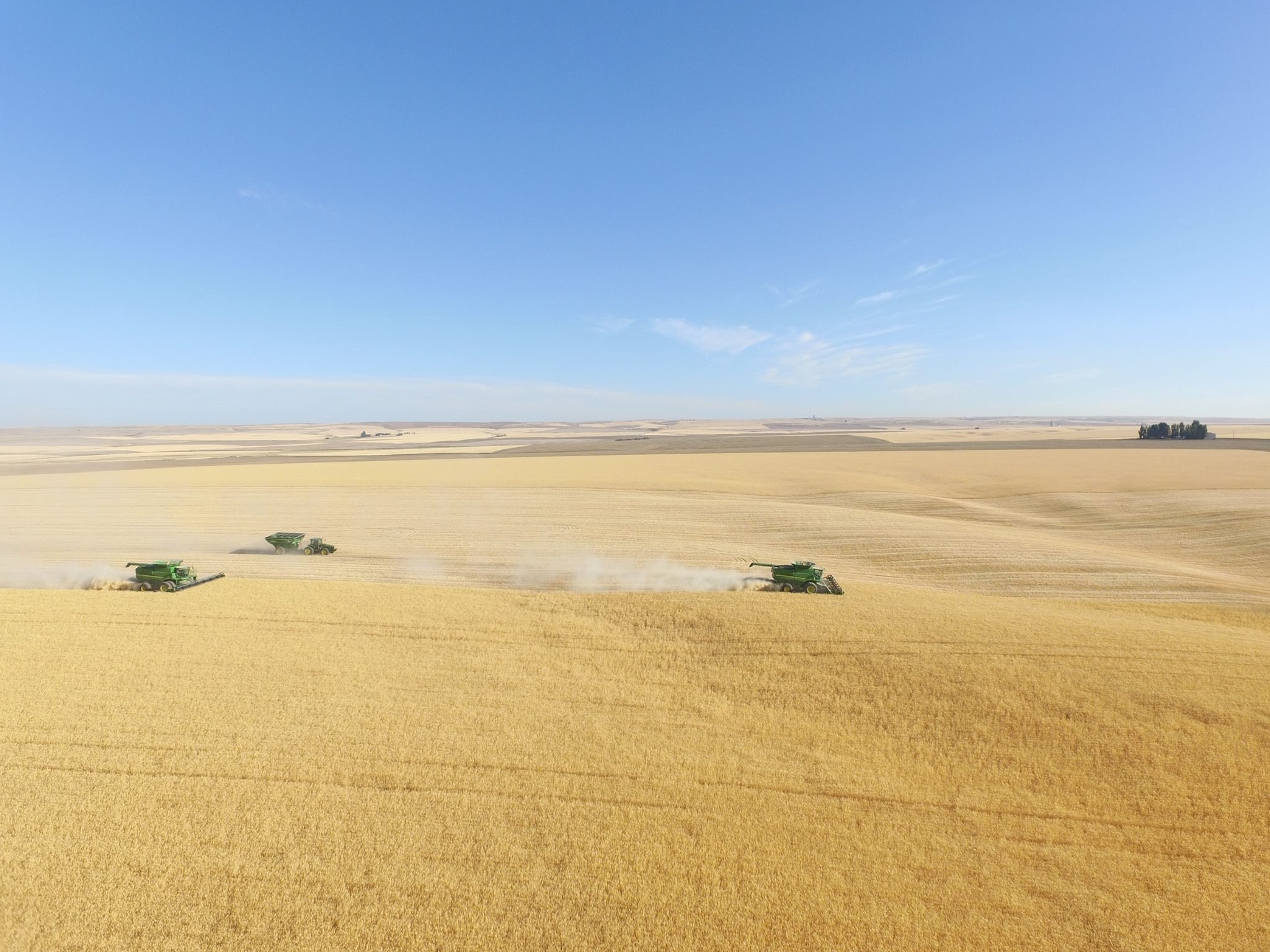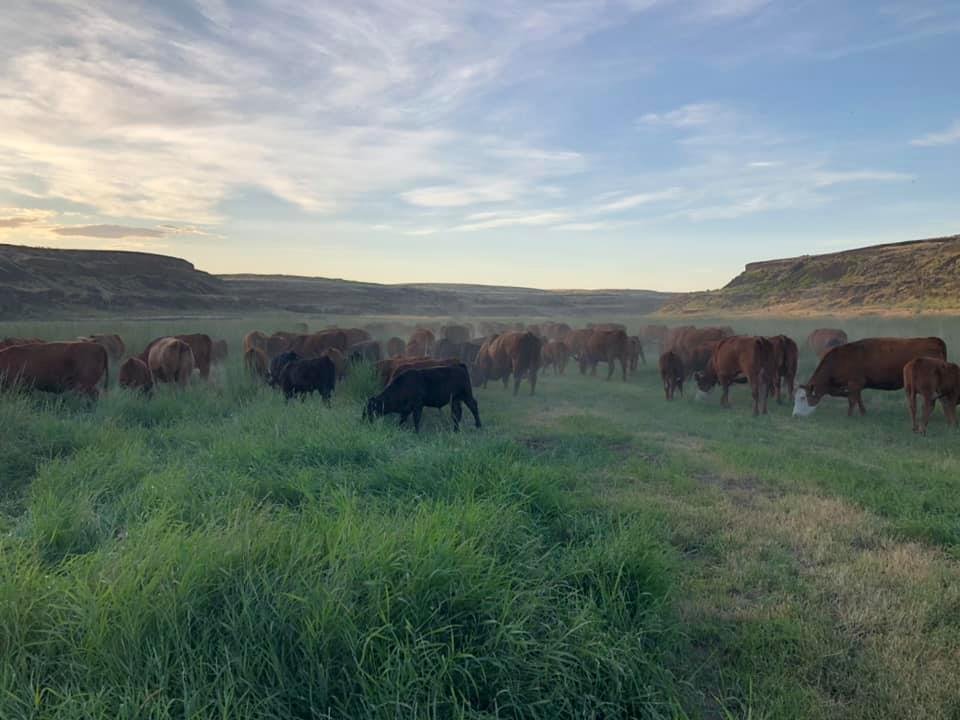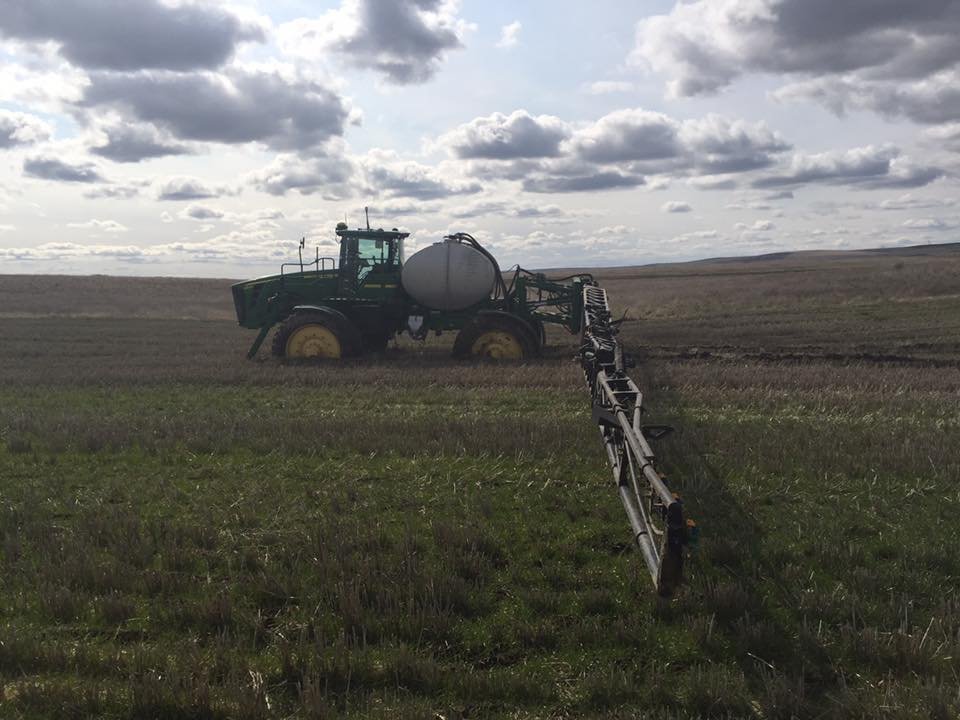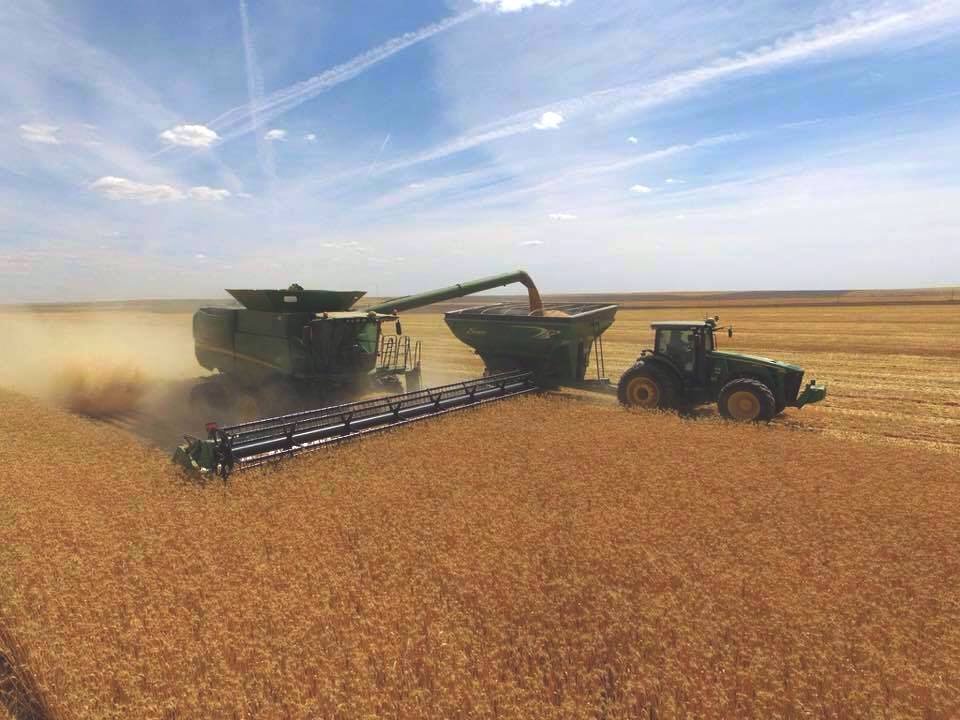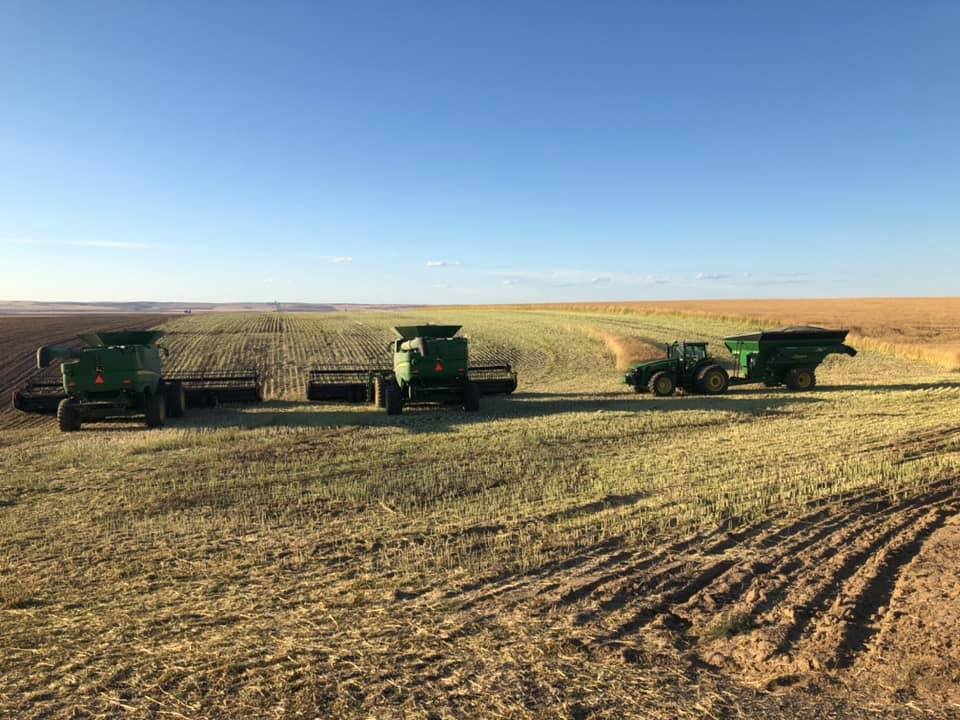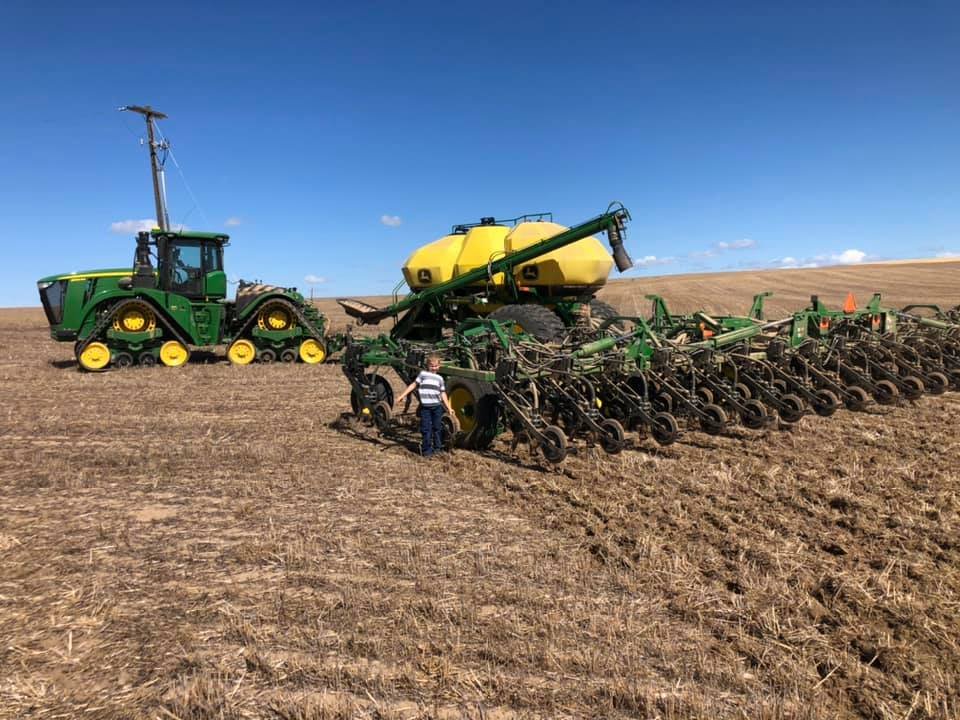Poe Farms
Poe Farms
History:
Katie (Utt) Harris, her husband James and her 2 sisters homesteaded a section near Hartline WA in 1888.
Katie Utt moved from Wisconsin to Hartline in 1888 with her parents and four sisters. In May 1889 Katie purchased a deed containing 172 acres. On this land, Katie and her family were able to build several small shacks. During these times, her father would haul water by horse and wagon daily.
Barn Yard of J. Harris in August, 1908.
In 1889 Katie married James Harris, a Canadian who had moved to the region, and moved to the quarter-section he had homesteaded and built a home on just south of the Utt homestead. James and Katie had three daughters: Florence, Margaret, and Ethel. The direct descendants of James and Katie have farmed this land ever since. With roughly 662 acres of farmland, the Harris family raised wheat, which sometimes was just enough to feed the horses. Eventually, they began growing more spring crops including oats and barley.
Catherine Poe on a combine. Year unknown.
James Poe waving on the combine. Year unknown.
Harvest, 1974. Left: John & Terry Poe
Middle: James Poe & Mark Eastman
Right: Jerry Anderson
Front: Dean Thompson
Harvest, 1986.
Harvest, 2017. Left: John & Ryan Poe
Middle: Terry Poe, George Davis & Dean Thompson
Right: Todd Kinzel & Logan Bohnet
Front: James Poe & Brennan Hansen-Hines
Harvest 2014. Left: Ryan & James Poe
Middle: Terry Poe & Dean Thompson
Right: Logan Thompson (Deceased)
Ryan and James Poe, 2020.
Harvest, 1936.
After James Harris’s death in 1923 Katie Harris did her best to keep the farm going with the help of her sons-in-law but decided farming wasn’t for her. In the fall of 1935, at the age of twenty-one, her grandson James Poe began renting the ground, later borrowing from the Wilson Creek State Bank to purchase 320 acres of the original Harris homestead. By that point in time the other portion of the section, which James was already farming, was owned by descendants of his aunt Ethel.
James and his wife Ann Poe continued the family farming legacy and later transitioned the farm to their two sons and their wives, Terry and Sheila Poe and John and Sue Poe. Terry and Sheila have two children, Dean Thompson and Jen Doughty. John and Sue have two children, Ryan Poe, and Chrissy Fagerholm. Terry, Dean, and Ryan presently operate the farm Poe Farms J.V. Dean and his wife Lisa have two children, Danni Anderson and Logan Thompson (deceased). Ryan and his wife Marlene have two children, Katie and James.
Today:
It’s a team effort at Poe Farms J.V. Ryan Poe partners with his uncle and cousin to cultivate the land. What started as 662 acres 133 years ago has grown to an operation of roughly 15,000 acres. They grow primarily winter wheat, winter canola, and have a beef cow/calf operation.
Logan Thompson tragically passed away in 2016. His death has left a huge void in the family farming operation. He was a hard-working individual and was on course to join this multi-generational farm. He was proud to be a farmer and would have been vital in the family’s efforts to be good stewards of the land to provide for future generations.
Ryan hopes that his son James, who at a young age has shown a love of farming, will continue the legacy.
Biggest Changes:
Ryan said that some of the biggest changes on the farm are technology and equipment. “In my short time farming we have gone from driving tractors manually to utilizing technology such as auto-steer, auto boom height on our sprayer, yield monitors on our combines, and variable rate fertilizer application equipment.” notes Ryan, “Our most recent technology advancement is the addition of a Weed-It system on our sprayer, allowing targeted spraying of weeds rather than blanket application, thus reducing chemical use.” Furthermore, every piece of equipment at Poe Farms is equipped with auto-steer.
Poe Farms is currently in a transition from conventional tillage to direct seed. “Today we operate two air drills on our direct seed acres. The air carts attached to the drills allow us to put on seed, starter, and fertilizer all in one pass.”
Ryan ends by saying, “It is extremely difficult to keep land within one family for over a century. The challenges that my ancestors faced then are much different than what we face now. Yes, we may have air conditioning, cell phones and precision ag technology but we face a unique set of challenges. I feel incredibly blessed to be a part of a family operation that can trace it roots back 133 years. I am hopeful we can continue to maintain the farm within our family.”













